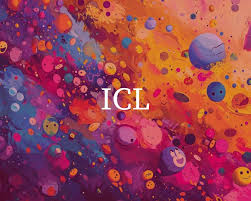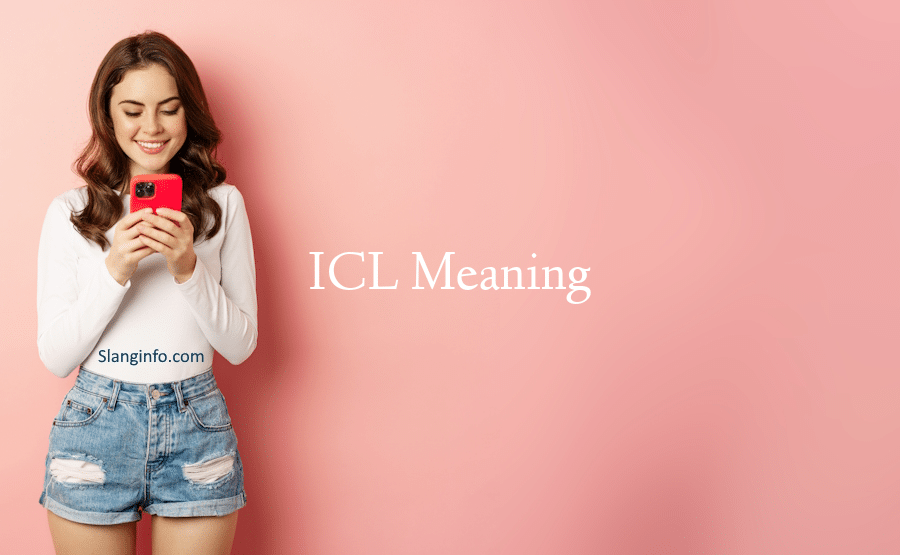In the wild world of internet slang, ICL has become the go-to abbreviation for those moments when you just have to keep it real. Whether you’re spilling tea on TikTok or dropping truth bombs in your group chat, ICL is the perfect preface to your most candid thoughts. But what exactly does ICL mean, and how can you use it like a pro? Let’s dive into the honest truth about this trendy acronym.
Key Takeaways:
- ICL stands for “I Can’t Lie”
- It’s used to emphasize honesty or sincerity in a statement
- Popular on social media platforms like TikTok, Snapchat, and Twitter
- Similar to other honesty-emphasizing slang like “NGL” (Not Gonna Lie)
- Appropriate for casual, friendly communication but not formal settings
What Does ICL Mean?

ICL is an acronym that stands for “I Can’t Lie.” It’s the digital equivalent of putting your hand on your heart and swearing to tell the truth, the whole truth, and nothing but the truth. When someone uses ICL, they’re basically saying, “Listen up, because I’m about to drop some real talk.”
The Origins of ICL
While it’s hard to pinpoint exactly when ICL first popped up in the digital lexicon, it gained significant traction around 2020. As social media users sought ways to express authenticity in a world of carefully curated online personas, ICL became the perfect tool for signaling genuine thoughts and feelings.
How to Use ICL in Your Digital Life
Using ICL is pretty straightforward, but there are a few key things to keep in mind:
- Placement: Typically, ICL comes at the beginning of a statement. It’s like clearing your throat before making an announcement.
- Context: Use ICL when you want to emphasize the honesty or sincerity of what you’re about to say. It’s particularly effective for:
- Sharing opinions
- Making confessions
- Giving feedback
- Expressing surprise or disbelief
- Tone: ICL can be used for serious topics, but it’s also great for adding a touch of humor to your statements.
Here are some examples of ICL in action:
- “ICL, that new restaurant was a total letdown.”
- “ICL, I’ve never seen a single episode of Game of Thrones.”
- “Your new haircut? ICL, it looks amazing on you!”
ICL Across Social Media Platforms

ICL has found a home on various social media platforms, each with its own flavor:
- TikTok: Often used in video captions or comments, especially when sharing opinions or reactions.
- Snapchat: Perfect for quick, candid exchanges between friends.
- Twitter: Great for prefacing hot takes or honest thoughts in tweets.
- Instagram: Sometimes seen in comments or direct messages.
ICL vs. Other Honesty-Emphasizing Slang
ICL isn’t the only slang term used to emphasize honesty. Here’s how it compares to some similar expressions:
- NGL (Not Gonna Lie): Very similar to ICL, often used interchangeably.
Example: “NGL, that outfit looks great on you.” - LBVS (Laughing But Very Serious): Used when something is funny but true.
Example: “I could eat pizza every day LBVS.” - No cap: Means “no lie” or “for real.”
Example: “This party is lit, no cap!”
While these terms all revolve around honesty, ICL tends to be used for more heartfelt or serious statements, whereas “no cap” might be used in more casual or hyperbolic situations.
The Cultural Significance of ICL
The popularity of ICL reflects a broader trend in online communication – the desire for authenticity. In a world of carefully curated social media feeds and sus (suspicious) content, ICL serves as a way to cut through the noise and signal genuine thoughts or feelings.
Dr. Emma Thompson, a digital communication expert, explains:
“Terms like ICL allow users to create a sense of intimacy and trust in their online interactions. It’s a linguistic tool that helps bridge the gap between the digital and real-world self.”
ICL: Kid-Friendly or Edgy?
Good news for parents and educators: ICL is generally considered kid-friendly. It doesn’t contain any explicit or offensive language, and its meaning is straightforward and harmless. However, as with any slang term, context matters. While the acronym itself is innocent, the content that follows it might not always be suitable for younger audiences.
Tips for Using ICL Effectively
If you want to incorporate ICL into your online vocabulary, here are some pro tips:
- Use it sparingly: Overusing ICL can dilute its impact. Save it for when you really want to emphasize your honesty.
- Consider your audience: While ICL is widely understood among younger users, older generations or professional contacts might not be familiar with it.
- Follow through with honesty: If you preface a statement with ICL, make sure what follows is genuinely truthful. Using it ironically or sarcastically can lead to misunderstandings.
- Be prepared for responses: When you use ICL, you’re often opening yourself up to vulnerability. Be ready for reactions to your honest statements.
- Don’t use it to soften harsh criticism: While ICL can preface constructive feedback, it shouldn’t be used as a shield for being unnecessarily mean or blunt.
Conclusion: The Power of Digital Honesty
ICL might seem like just another internet acronym, but it’s actually a powerful tool for fostering genuine communication in the digital age. By using ICL, you’re signaling to others that you’re about to share something real and unfiltered – a rare commodity in today’s carefully curated online world.
Remember, language is constantly evolving, especially in the digital realm. Staying updated with current slang can help you communicate more effectively and understand the nuances of online interactions. Whether you choose to incorporate ICL into your own digital vocabulary or simply understand it when you see it, you’re now equipped to navigate this piece of internet culture.
So, the next time you want to share an unpopular opinion or make a heartfelt confession online, remember: ICL, it’s okay to be honest and vulnerable sometimes. It might just help you form more genuine connections in the digital world.
And hey, if you’re looking to expand your slang vocabulary even further, why not check out the meanings of other popular terms like GYAT or WTW? After all, FYSA (For Your Situational Awareness), staying on top of internet lingo is always a good idea!







